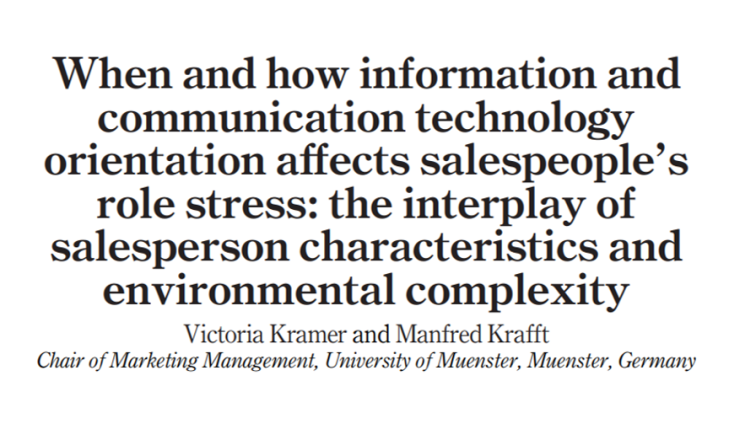How does technology orientation affect salespeople in increasingly complex sales environments? New publication by Victoria Kramer and Manfred Krafft in the European Journal of Marketing

Within the last few years, the use of technology has become an indispensable factor in sales. At the same time, the level of complexity in the selling environment is constantly increasing, as customers become more demanding, and new business models in sales focus on the creation of value for customers by providing individualized offerings.
But how does the use of technology in such complex sales environments affect salespeople, especially in terms of their level of role stress? Victoria Kramer and Manfred Krafft investigate this question in their recent publication in the European Journal of Marketing.
Based on theoretical arguments from the Job Demands-Resources model and previous research on technology in sales, the authors develop a conceptual framework and test their hypotheses using a survey of 255 business-to-business salespeople. The results of this study show that information and communication technology orientation generally helps salespeople reduce role ambiguity, i.e. a lack of clarity on demands that need to be fulfilled. However, the benefits that salespeople derive from information and communication technology orientation to reduce role conflict, i.e. the perception of seemingly incompatible demands that need to be fulfilled, depend on an interplay of their tenure and the average duration of the customer relationship, as well as the complexity of the sales environment. Thereby, the study contributes to research on the impact of information and communication technology use on salespeople by improving the understanding of the contexts that make technology valuable to them.
The article will be published as part of a special issue on “Value-Creating Sales: The Role of Digital Technologies”, and is now available online open access.

